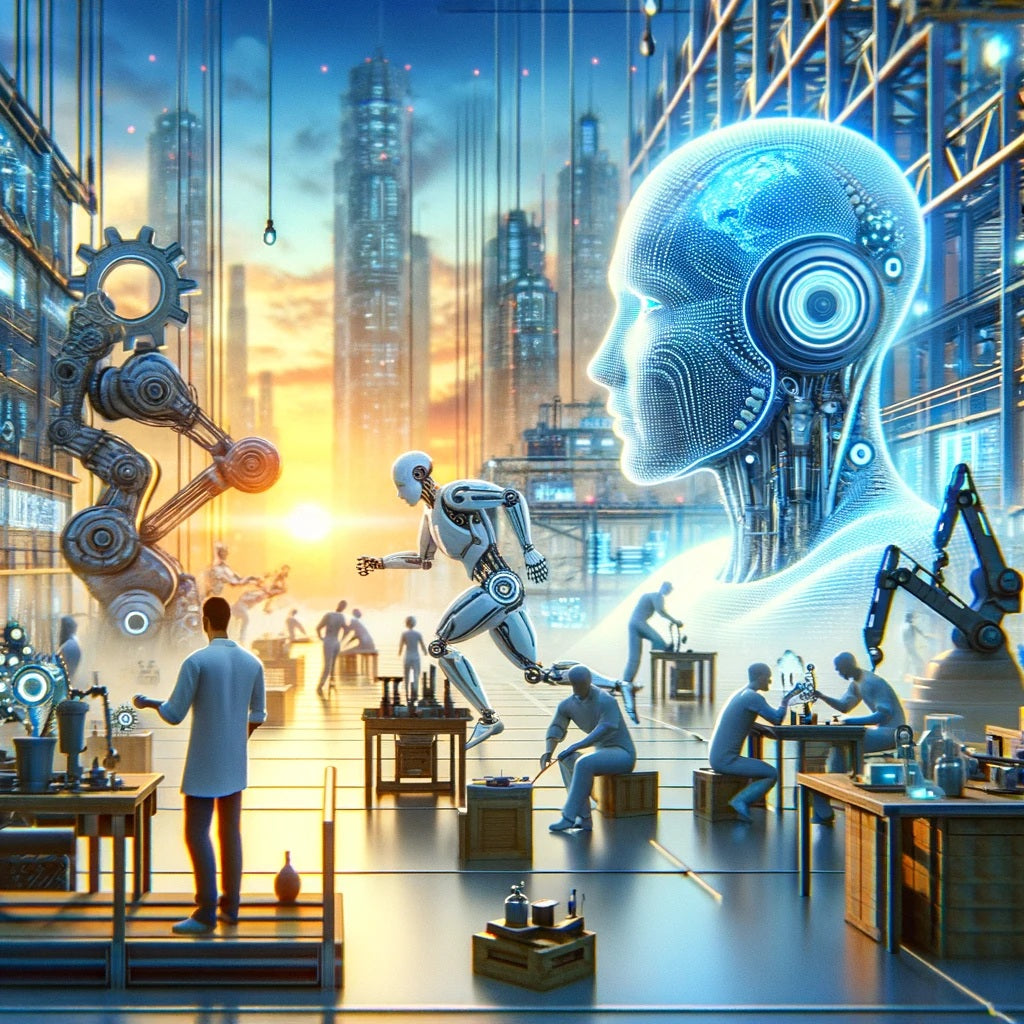#AbundanceSociety2040 #UBI #ManualLabor #CognitionServices #SyntheticMind
The future of human labor in the age of AGI and automation, as discussed in the articles from Digital Habitats, suggests significant shifts in both manual and cognitive work.
Automation and AI advancements are predicted to take over a substantial portion of human jobs within the next 5 to 20 years.
This transition could lead to increased efficiency and productivity, but also raises concerns about job displacement and economic disruption.
The challenge will be to reimagine our relationship with labor and work, possibly leading to a post-labor economy where human creativity and innovation are directed towards new sectors.
The future of human labor in the age of automation and AGI is marked by significant transformations.
Automation and AGI are projected to take over a considerable portion of both manual and cognitive labor.
This shift will lead to a fundamental reevaluation of job markets, economic structures, and the value of labor.
The potential elimination of numerous jobs necessitates a renewed focus on adaptable education systems, innovative economic models like Universal Basic Income, and the creation of new job sectors.
Emphasizing human creativity and adaptability will be crucial in navigating these changes and crafting a future that balances technological advancements with social and economic well-being.
This scenario underscores the importance of crafting policies and educational systems that adapt to these changes, ensuring that society benefits from technological advancements while mitigating negative impacts on employment and social structures.
The article on Digital Habitats website discusses an IMF report on the impact of AGI (Artificial General Intelligence) and automation on jobs, predicting that all human jobs could be destroyed within 5 to 20 years.
It highlights the expanding frontier of automation, the potential surpassing of human capacities by machines, and the implications for the economy.
The report covers both positive and negative impacts, including increased productivity and job destruction.
It also critiques the report for potentially exaggerating the timeline and underestimating human creativity.
The article provides a comprehensive analysis and considers the need for new job markets and regulatory responses to this technological advancement.
For more detailed insights, the articles can be accessed here for the future of labor economics and here for the IMF report on job destruction.

